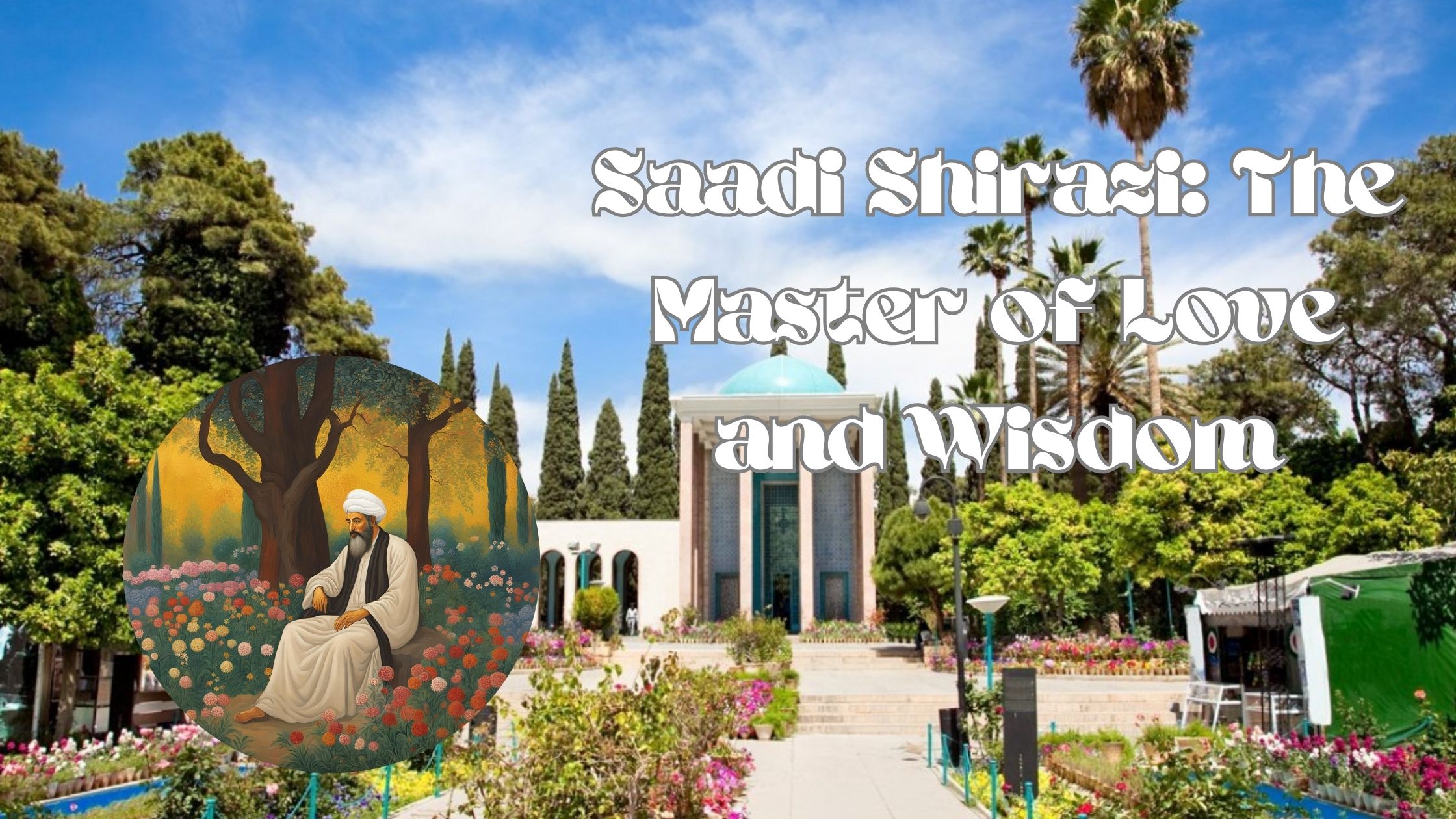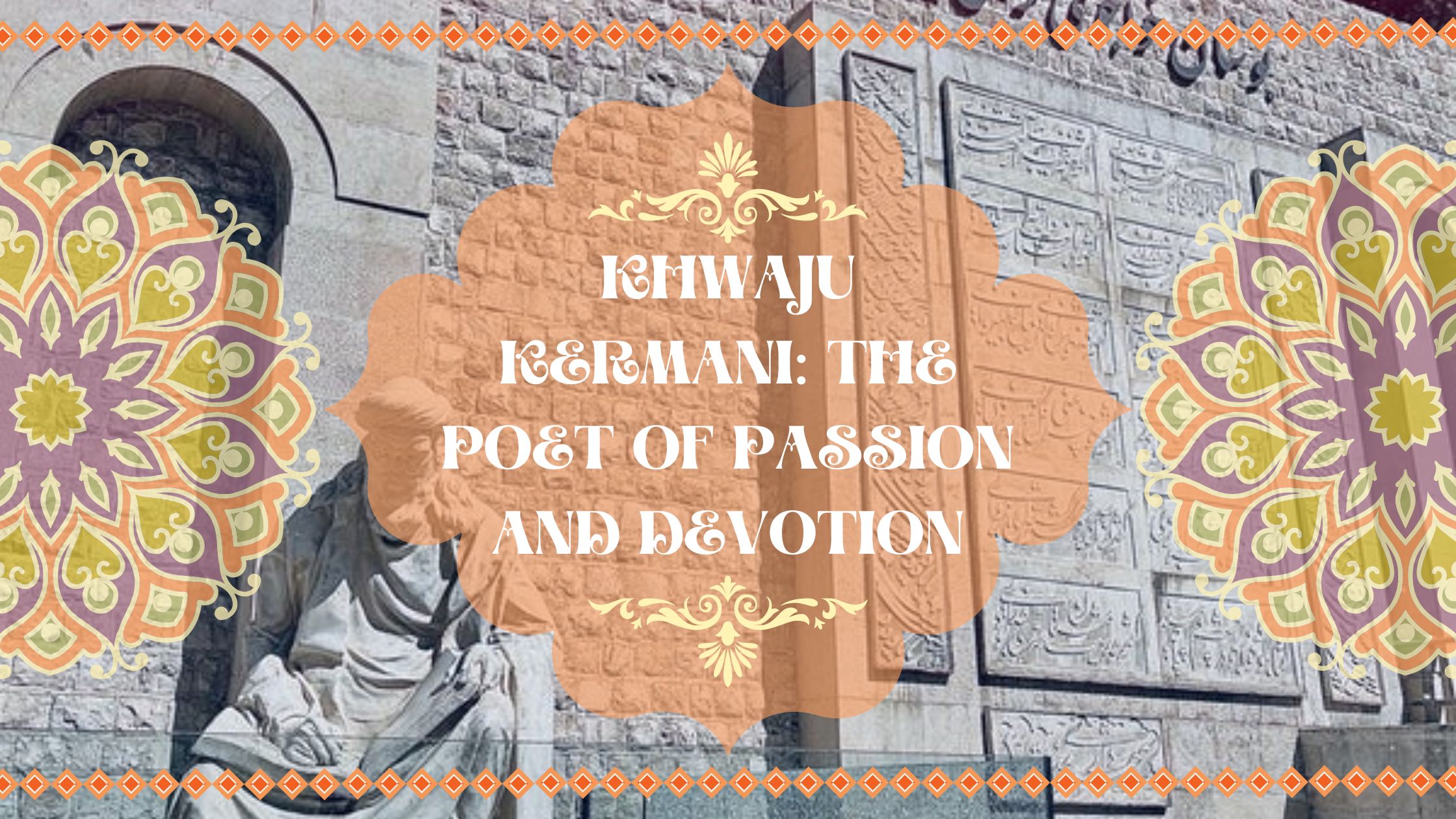Saadi Shirazi, one of the most celebrated Persian poets, is known for his profound insights into human nature and the complexities of love. His poetry blends lyrical beauty with philosophical depth, making his work resonate across cultures and centuries. The poem above is an exquisite example of Saadi’s mastery, weaving together themes of love, devotion, and longing.
Poem in Persian:
سرمست درآمد از درم دوست
لب خندهزنان چو غنچه در پوست
چون دیدمش آن رخ نگارین
در خود به غلط شدم که این اوست
رضوان در خلد باز کردند
کز عطر مشام روح خوشبوست
پیش قدمش به سر دویدم
در پای فتادمش که ای دوست
یک باره به ترک ما بگفتی
زنهار نگویی این نه نیکوست
بر من که دلم چو شمع یکتاست
پیراهن غم چو شمع دَهتوست
چشمش به کرشمه گفت با من
در نرگس مست من چه آهوست؟
گفتم همه نیکوییست لیکن
این است که بیوفا و بدخوست
بشنو نفسی دعای سعدی
گر چه همه عالمت دعاگوست
Translation of Saadi Shirazi's Poem
My beloved entered through my door, intoxicated,
Smiling gently, like a rosebud in its sheath.
When I beheld that radiant, exquisite face,
I lost myself, questioning if this could truly be them.
The gates of paradise swung open wide,
For the soul rejoiced in the fragrance of their presence.
I rushed forward and knelt at their feet,
Falling before them, crying, "O my dear friend!"
"You abandoned me entirely," I pleaded,
"Pray, do not say such things—it is unkind."
To me, whose heart burns as a solitary flame,
The cloak of sorrow envelops tenfold.
Their eyes, with a playful glance, said to me,
"What antelope could match my intoxicating gaze?"
I replied, "All is beauty within you, no doubt,
Yet this—your faithlessness and harshness—grieves me most."
Listen for a moment to Saadi’s prayer,
Though the whole world prays for your well-being.
The Arrival of the Beloved
The poem begins with a dramatic entrance: the beloved, intoxicated and smiling, steps into the poet’s world. Saadi uses imagery that conveys both awe and tenderness:
"My beloved entered through my door, intoxicated,
Smiling gently, like a rosebud in its sheath."
This moment is not just a physical meeting but an emotional upheaval, where the poet is both overjoyed and disoriented by the beloved’s presence.
A Glimpse of Paradise
In Persian poetry, the beloved often embodies divine beauty, and their presence is likened to paradise. Here, the poet elevates the beloved’s fragrance to a heavenly experience:
"The gates of paradise swung open wide,
For the soul rejoiced in the fragrance of their presence."
The beloved’s arrival is transformative, bringing an otherworldly joy that transcends the mundane.
The Plea for Kindness
Despite the overwhelming love, the poet reveals the pain of abandonment. Saadi pleads with the beloved to reconsider their coldness:
"You abandoned me entirely," I pleaded,
"Pray, do not say such things—it is unkind."
This vulnerability reflects the human longing for connection and the anguish of unrequited love.
The Duality of Beauty and Faithlessness
In one of the poem’s most striking moments, the poet acknowledges the beloved’s unmatched beauty while lamenting their lack of loyalty and kindness:
"I replied, 'All is beauty within you, no doubt,
Yet this—your faithlessness and harshness—grieves me most.'"
This duality is a recurring theme in Persian poetry, where the beloved is both adored and critiqued, reflecting the complexities of human relationships.
The Poet’s Prayer
The poem concludes with a heartfelt prayer from Saadi, who, despite his personal sorrow, joins the world in wishing well for the beloved:
"Listen for a moment to Saadi’s prayer,
Though the whole world prays for your well-being."
This selfless act of prayer underscores the poet’s magnanimity and deep devotion, even in the face of heartache.
Themes in Saadi’s Poem
- The Power of Beauty: The beloved’s presence is transformative, evoking images of paradise and divine grace.
- Love and Pain: The poet explores the interplay between joy and sorrow in love, capturing the vulnerability of the human heart.
- Faithlessness and Devotion: Saadi contrasts the beloved’s fickleness with his unwavering loyalty, highlighting the bittersweet nature of love.
- Spiritual Undertones: The beloved is not just a human figure but a symbol of divine beauty, elevating the poem’s emotional resonance.
Relevance of Saadi’s Poetry Today
Saadi’s exploration of love, beauty, and devotion remains timeless. His poetry speaks to universal emotions, offering solace and inspiration to readers across generations.
- In Relationships: Saadi’s verses remind us of the complexities of love, urging us to balance passion with patience and understanding.
- In Spirituality: The poem encourages us to see beauty as a reflection of the divine, inviting us to find meaning beyond the physical.
- In Art and Expression: Saadi’s ability to blend personal emotion with universal themes serves as a model for creative expression.
Final Thoughts
Saadi Shirazi’s poetry is a treasure trove of wisdom and beauty. This particular poem captures the highs and lows of love, painting a vivid picture of devotion, longing, and heartbreak.
What aspects of Saadi’s poetry resonate most with you? Do you see parallels between his reflections on love and your own experiences? Let’s discuss and celebrate the timeless genius of Saadi together. Would you like to explore more of his works or dive into another Persian poet? Let me know!





